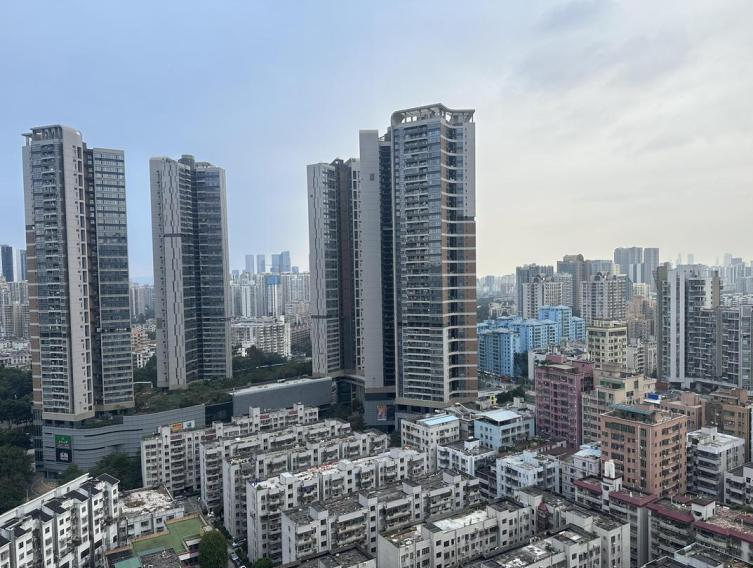
Pressure to de-escalate property in Shenzhen comes as the local government announced a large-scale purchase of commercial housing for affordable housing, becoming the first first-tier city in China to take such a step citywide.
The surveyed experts pointed out that this marks the acceleration of China's affordable housing financing strategy from new construction to revitalizing the inventory of housing, but because the acquisition price is generally low, the game between the government and developers may make it difficult to land residential projects in the short term.
Shenzhen Anju Group, a subsidiary of the State-owned Assets Supervision and Administration Commission of the Shenzhen municipal government, announced in early August that it would collect existing commercial housing for affordable housing projects. The scope of solicitation includes residences, apartments and dormitories of less than 65 square meters in Shenzhen.
The policy aims to actively build a secure and market-based housing supply system, and follows the principles of marketization, rule of law and mutual voluntariness, the circular said. The deadline for solicitation is October 31.
According to the statistics of Le Youjia research Center, the residential de-industrialization (sales) cycle in Shenzhen has continued to rise since December last year after breaking 20 months, and has reached 24.8 months in June this year. The extension of the de-chemical cycle reflects the low turnover of the new home market and the continuous increase of inventory pressure.
Zheng Shulun, president of Central Plains Real Estate in South China and general manager of Shenzhen Central Plains, told Lianhe Zaobao that the acquisition plan will speed up the de-urbanization of the stock of commercial housing and fill the gap in affordable housing in Shenzhen, which is the best of both worlds.
"It [the purchase plan] will continue to provide affordable housing while also taking into account the interests of developers, reducing the impact on the commercial housing market and hopefully promoting stability in the property market," he said.
The persistently weak property market is a drag on China's economic growth. In an effort to boost the property market recovery, Chinese authorities have repeatedly offered to support the purchase of existing commercial housing for affordable housing since April.
According to Centaline Real Estate Research Institute statistics, as of July 30, more than 60 cities in China have introduced similar "buy to build" policies in the past few months. Earlier, Guangzhou also issued corresponding policies, but the scope is limited to Zengcheng district. At the municipal level, Shenzhen is the first first-tier city to implement a citywide acquisition program.
Some analysis pointed out that the policy direction of various places is clear, but the specific landing progress is slow, and the operation still faces various challenges, such as the improvement of the implementation rules and the promotion of specific progress.
Compared with other cities, Shenzhen's acquisition plan is relatively more detailed, which is considered by the industry to have a certain guiding role in the policy formulation of other cities.
Li Yujia, chief researcher at the Guangdong Provincial Housing Policy Research Center, said that as government-subsidized housing, Anju Group needs to sell commercial housing at a discount of 50 to 60 percent of the market price, so the purchase price must be low enough to ensure commercial viability and financial balance.
He pointed out that the purchase price is a "cabbage price" for developers, but because they are currently facing the double pressure of paying the housing and debt repayment, they may choose to sell the property, project or equity to the government at a low price in order to get the money back quickly.
Li Yujia believes that because the government and developers are still in the game stage, it is expected that residential projects are less likely to be acquired in the short term. For lower-priced apartment and dormitory projects, the government can more easily balance the funds, so it is more likely to pursue the acquisition of these projects.
Cheng believes that the government purchase plan on the future trend of housing prices may have an impact. 'The imbalance between supply and demand in Shenzhen's property market has made people pessimistic about future housing prices, and the government has effectively set an implicit guide price for surrounding buildings by buying commercial housing,' he said.
He explained that such guidance prices are not achieved through direct administrative orders, but through market-based acquisition behavior to influence the price expectations of market participants.
"This approach may play a role in stabilizing house prices in the future, allowing the market to adjust to the government's purchases and gradually develop reasonable expectations for house prices."
He said the effectiveness of the policy depends on specifics such as the size, location and price of the property purchased. Therefore, the results of the first acquisition project are highly anticipated and may be a new bellwether for future market trends.

A new survey released in the United States shows that in the context of rising prices and growing concerns among the public about the economic outlook of the country, there is a coexistence of frugality and differentiation.
A new survey released in the United States shows that in th…
By the end of 2025, the situation in the Middle East resemb…
According to Channel NewsAsia, international oil prices hav…
On Sunday, US President Donald Trump Trump met with Ukraini…
Officials in the Trump administration, speaking on Fox News…
In 2025, the Trump administration reshaped the global trade…